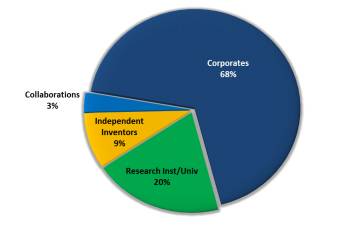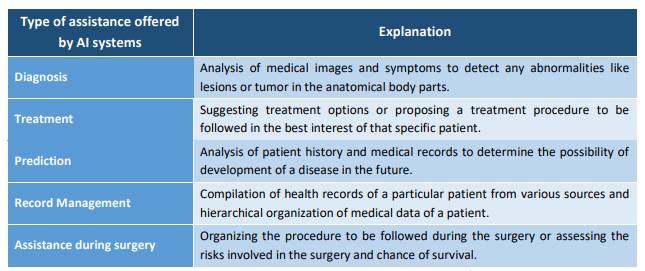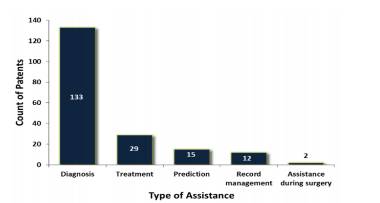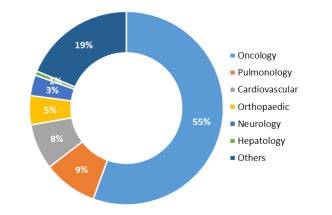Introduction
What do self-driving cars, face recognition, industrial robots, missile guidance and tumor detection have in common? They are all complex, real-world problems being solved with applications of intelligence. The Robot series by science fiction author Isaac Asimov, perceived as foundation to artificial intelligence, is now being crafted into reality. Since 1920, scientists have dreamed of creating an “electronic brain.”
Artificial intelligence(AI) is the study of computerized systems or programs that are capable of rational thinking. According to the father of Artificial Intelligence, John McCarthy, it is “The science and engineering of making intelligent machines, especially intelligent computer programs.”[1] An intelligent machine is one that mimics cognitive functions and learning abilities of a human brain, such that it can be applied for solving problems.
For AI technologies, health care has long been viewed as a promising domain. AI-based applications have the potential to improvise interaction in a clinical care-related environment, thus having an inevitable impact on the health outcomes and quality of life. AI systems have now been employed to assist health-care professionals in managing enormous amounts of patient data, provide guidance and decision support, and improve clinical workflow. Despite the recent developments, these systems are limited when it comes to the need of monitoring and updating by clinicians.
Assignees
The pie chart below shows the distribution of patent filings based on types of assignees:






